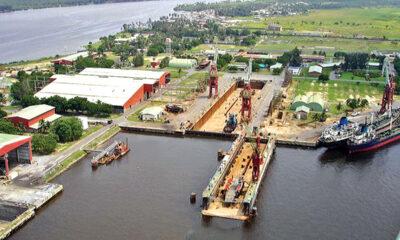The report showed that Nigeria’s top-performing taxpayers are Nigeria Liquefied Petroleum Gas Company, Nigeria National Petroleum Company, Mobil Producing Unlimited, Star Deep Water Petroleum Limited, MTN Nigeria and others.
FIRS said it was pleased to celebrate the top-performing taxpayers who contributed to her success in 2021.
“The service surpassed its tax collection target in 2021, and in doing so, crossed the N6 trillion threshold for the first time,” the Service stated.
It added the feat was made possible through the “uncommon leadership” of President Muhammadu Buhari.
List of Top 10 tax-compliant companies in 2021
Nigeria Liquefied Petroleum Gas Company Ltd. (Oil sector)
Nigeria National Petroleum Company. (Oil sector)
Mobil Producing Unlimited. (Oil sector)
Star Deep Water Petroleum Ltd. (Oil sector)
Nigerian petroleum Development Company Limited. (Oil sector)
Shell Petroleum Development Co Limited. (Oil sector)
Chevron Nigeria Limited. (Oil sector)
Total E&P Nigeria Limited (Oil sector)
MTN Nigeria Communications PLC – (Non-Oil sector)
Airtel Networks Limited (Non-Oil sector)
Investors King gathered that Dangote Cement came in 12th place. MTN Nigeria Communications PLC’s total tax contribution to all government agencies including the FIRS amounted to N757.6 billion.
The company paid a total of N618.7 billion in direct and indirect taxes to the FIRS in the 2021 tax year, which makes it the largest single biggest contributor to taxes in Nigeria at 13.5%.































